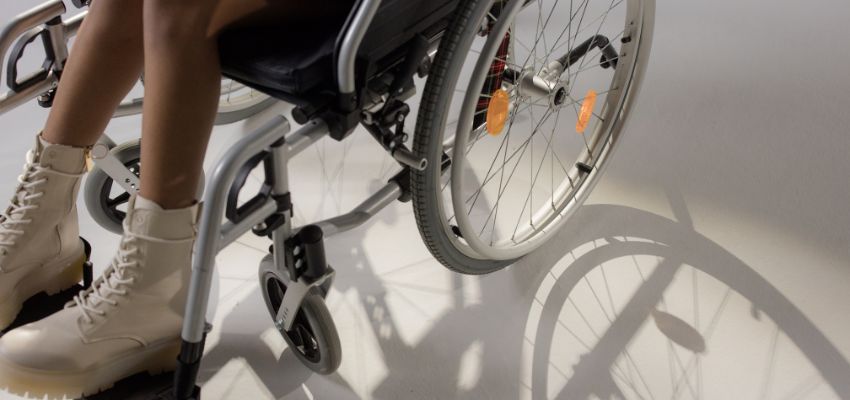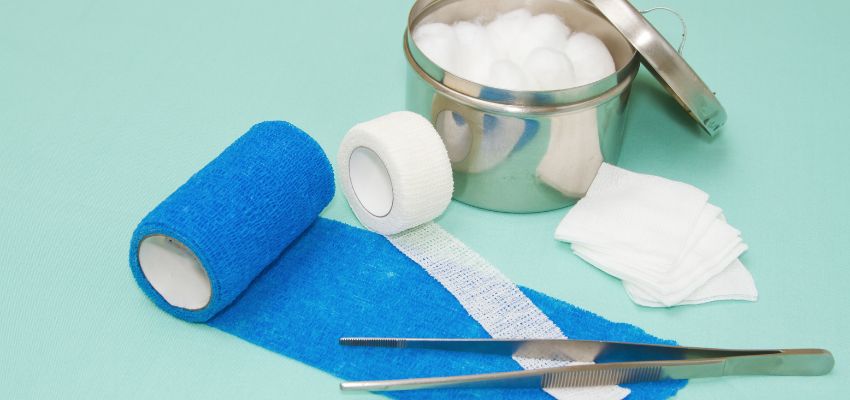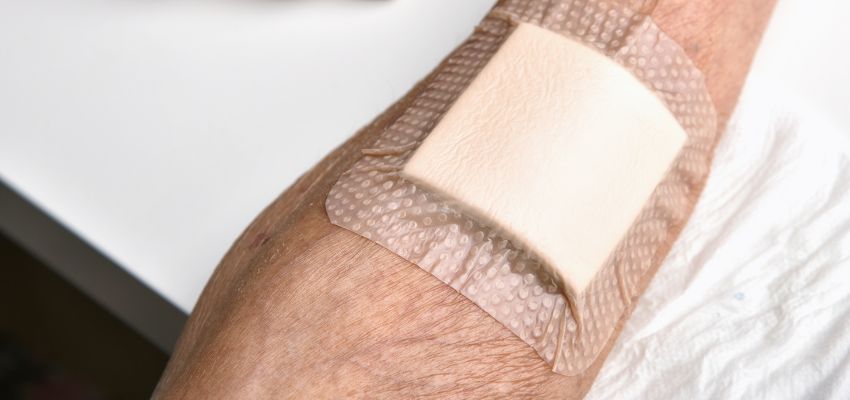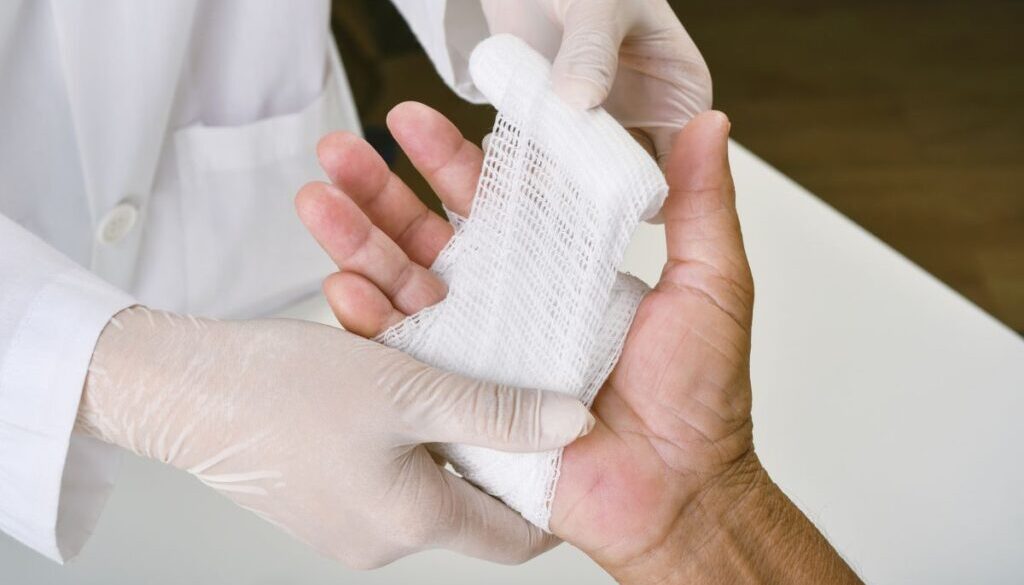Denuded Wound Care: What You Should Know

Commonly Affected Areas
- Pressure points. The heels and elbows are especially vulnerable to pressure, particularly for patients with limited mobility.
- Folds and crevices. Regions like the groin and underarms are at risk due to moisture and friction.
- Surgical sites. Post-operative wounds may become denuded if the healing process is complicated.
Different Stages Of A Denuded Wound
A denuded wound can develop through several stages, each requiring specific care measures.
- Stage 1 – Erythema and superficial loss. Characterized by initial redness and slight skin loss, resembling a mild abrasion
- Stage 2 – Partial thickness loss. Involves deeper layers of the dermis.
- Stage 3 – Full thickness loss. It extends through all layers of the skin, reaching the subcutaneous tissues.
- Stage 4 – Full thickness tissue loss. Represents extensive tissue damage, exposing underlying muscle or bone.
Management Of Denuded Wounds
Managing denuded wounds requires specific interventions tailored to the healing stage and the underlying causes of the wound. These steps are crucial to promoting optimal healing and preventing further complications.
Gentle Cleaning And Debridement Techniques
Use saline solutions for gentle cleaning and minimal debridement. This method protects delicate tissues. It effectively removes debris and contaminants. It’s essential to carry out this process carefully to avoid further trauma to the sensitive wound area. When debridement is necessary, consider using enzymatic or autolytic techniques as appropriate.
Dressing
Choose non-adherent dressings specifically designed to reduce trauma during dressing changes. Hydrocolloid and foam dressings create a moist environment essential for healing and provide a protective barrier against external contaminants.
Moisture Balance
Keeping wounds at an optimal moisture level and avoiding excessive dryness and moisture is crucial, as either can hinder healing. Use suitable dressings to manage exudate effectively. This ensures the wound environment promotes healthy tissue regeneration.
Minimizing Exposure To Irritants And Allergens
Choose hypoallergenic products and use gentle adhesive tapes. This helps avert skin irritation and allergic reactions, which is crucial for those with sensitive skin or known allergies. Unsuitable products can worsen conditions and slow down healing.
Monitoring For Infections
Regular assessments should be conducted to spot signs of infection. Look for increased redness, warmth, or discharge. Early detection is vital for effective management. Prompt intervention helps the healing process and prevents wound deterioration. Establishing a routine monitoring schedule enhances wound health.
Proper management of denuded wounds requires a holistic approach. This includes gentle care and the right dressing selection. Moisture control and avoiding irritants are essential, as is infection monitoring.

Interventions For Promoting Effective Healing
Care for a denuded wound involves a comprehensive approach to allow optimal healing. These critical interventions play an important role in promoting proper recovery:
Role Of Advanced Wound Care Products
Consider using biologic dressings and negative pressure wound therapy (NPWT) to enhance healing. Biologic dressings contain living cells, growth factors, and other bioactive components. They create an optimal environment for tissue regeneration and accelerate healing. Innovative options, like amniotic membrane allografts, offer a protective barrier and actively stimulate the body’s natural healing processes.
NPWT is especially beneficial for complex wounds. It promotes blood flow, reduces edema, and creates a supportive environment for cell growth. By applying controlled negative pressure, NPWT pulls the wound edges together, reducing the wound size and speeding up recovery.
Nutritional Support And Hydration
A balanced diet is essential for tissue repair and recovery. It should be rich in proteins, vitamins, minerals, and proper hydration. Proteins are vital for forming new tissue and repairing cells. Vitamins like C and zinc support collagen synthesis and boost immune function.
Staying hydrated is essential for good blood circulation and aids in nutrient transport, both of which are important for effective healing. You can enhance your body’s healing abilities by including lean meats, dairy, fruits, vegetables, and whole grains in your meals.
Pain Management
Effective pain management is crucial for recovery. Unmanaged pain can slow rehabilitation and prolong recovery times. A mix of topical analgesics and oral medications can help relieve pain and promote healing.
Infection Prevention And Control
Administering antibiotics when necessary is crucial for healing. It’s also essential to monitor the wound closely for signs of infection. Early detection of increasing redness, swelling, or discharge enables prompt intervention, lowering the complication risk.
Collaborative Healthcare Approaches
Involving a multidisciplinary team to deliver customized, comprehensive care improves the recovery outcome. The team may consist of wound care specialists, nutritionists, physical therapists, and primary care doctors. All collaborate to address every aspect of the patient’s healing process.

Delivering Comprehensive Care For Denuded Wounds
Managing denuded wounds effectively requires a holistic approach. It’s crucial to prioritize personalized care and ongoing monitoring. Follow established guidelines and collaborate with healthcare professionals to promote healing. This teamwork increases patient comfort and improves the quality of life for those affected. Prioritize this crucial aspect of care to achieve better outcomes.
Heal Ulcers, Burns, & Surgery Wounds With Break-Through Amniotic Allograft Treatments
Experience the future of wound care with our advanced amniotic allograft treatments. Say goodbye to slow healing. Our innovative solutions promote faster recovery from pressure wounds, ulcers, burns, and surgical wounds. Trust the power of science for your healing journey. Regain your comfort and health today! See if you are eligible for treatment here.

About The Author
Corinne Grace is a full-time writer living in the Philippines. She has a nursing degree from Riverside College. Her background in nursing informs her perspective, allowing her to weave in themes of health, empathy, and resilience into her work.




